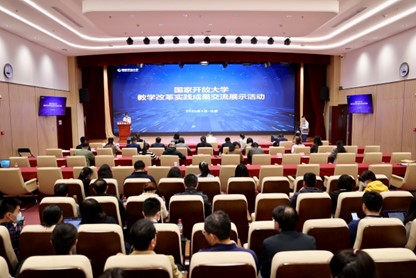 On 26 March 2024, the Open University of China (OUC) hosted an event to share and demonstrate the results of teaching reform practices, under the theme "Empowering Teaching and Learning Through Digitalisation."
On 26 March 2024, the Open University of China (OUC) hosted an event to share and demonstrate the results of teaching reform practices, under the theme "Empowering Teaching and Learning Through Digitalisation."
This event was conducted as a live broadcast, showcasing ten innovative teaching reform practices. It took place at the OUC headquarters, with Li Song, a member of the Party Committee and vice president of the OUC, in attendance. The event saw participation from all faculty and relevant teaching administrators. Lin Xiuqin, deputy director of the Academic Affairs Department, presided over the proceedings.

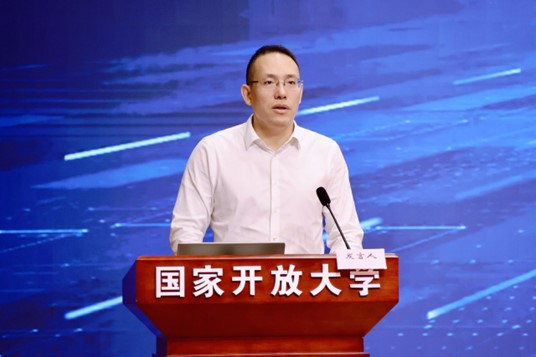
Li Song emphasised that, in the context of building a leading country in education and fostering a society and country of learning where lifelong learning is pursued by all, the people's demand for quality education has significantly strengthened. It is crucial for the OUC to conduct comprehensive research on several key areas: how to meet the growing learning needs of the people; guiding learners towards personal development through autonomous learning; implementing a people-oriented approach, and putting a people-oriented and student-centred approach into practice; enhancing course engagement and attractiveness to stimulate learners' motivation; and contributing to the construction of national economic and social development to realise the goal of educating talent for the Party and the country. He stated that it is necessary to integrate research and practice to significantly improve the effectiveness of reform.
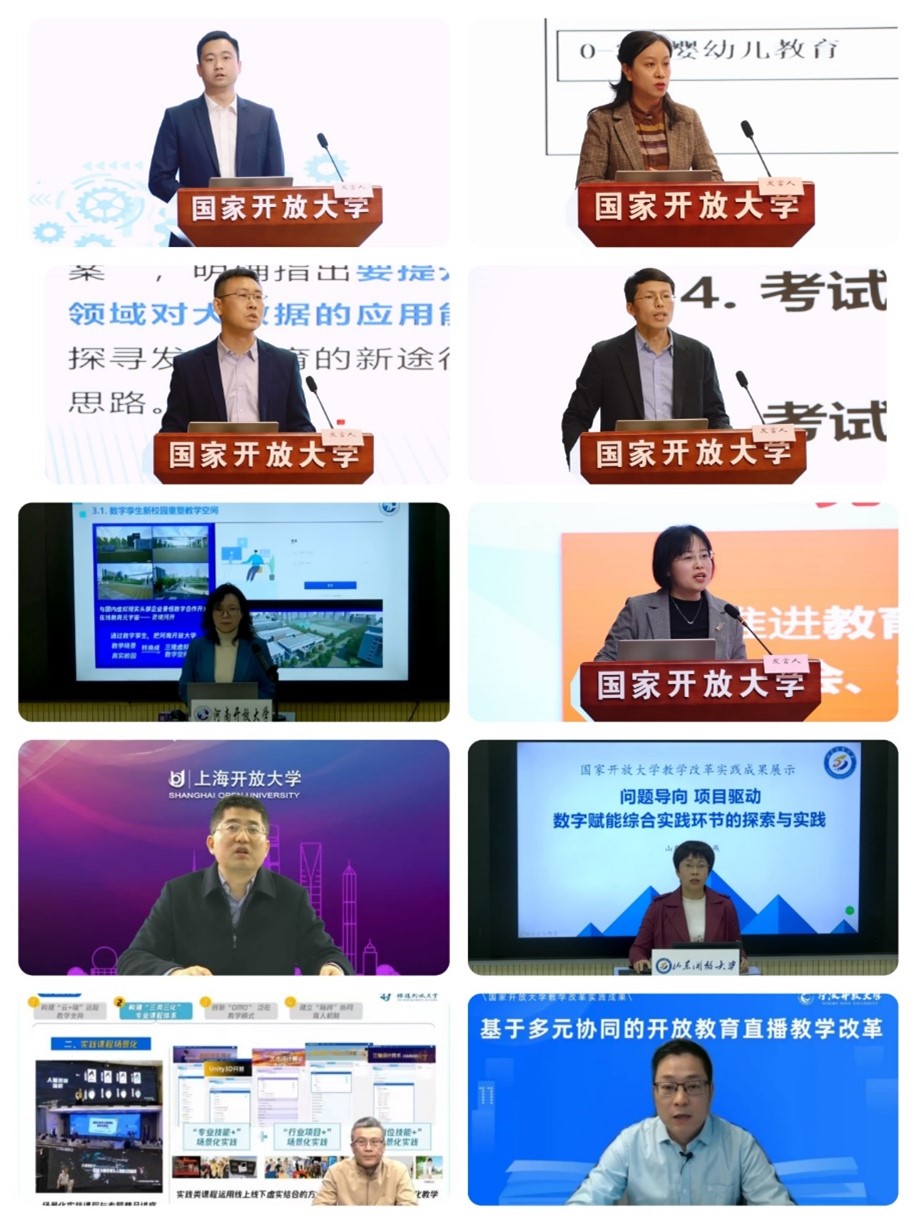
In the exchanges and demonstration session, Zheng Jipeng and nine other teachers focused on digitalisation reform, making excellent presentations and detailed demonstrations on a variety of topics. These included exploring virtual practice teaching, constructing the English smart teaching system, adapting the examination and assessment reform, innovating immersive teaching practices, empowering teaching management through "digital governance," managing the comprehensive practice link digitally, exploring the hybrid flexible teaching mode with the support of intelligent platforms, reforming the digital-enabled computer major cluster, and reforming the diversified collaborative live teaching. Each aspect was thoroughly addressed to showcase the potential of digital transformation in education.
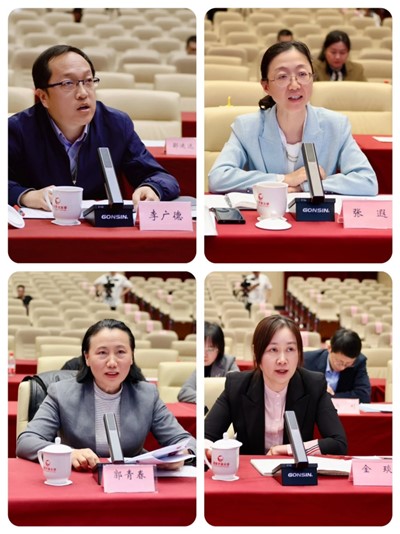
The activity also included an expert evaluation session. Four experts—Guo Qingchun, Zhang Xia, Li Guangde, and Jin Yan—spoke highly of the demonstration results. According to them, at the heart of digital transformation in education is the digitalisation of all elements, businesses, fields, and processes. Moreover, we should centre our efforts on students and proceed from their needs to promote it in a concerted manner. Digitalisation reform is a comprehensive reform. To fully realise the benefits of educational reform, it is essential to internally strengthen teacher training and the promotion of demonstration experiences, paying close attention to the evaluation and satisfaction of teachers, students, and employers in the implementation of education reform. Externally, it is necessary to further consolidate the results of education reform and to enhance the publicity and promotion.
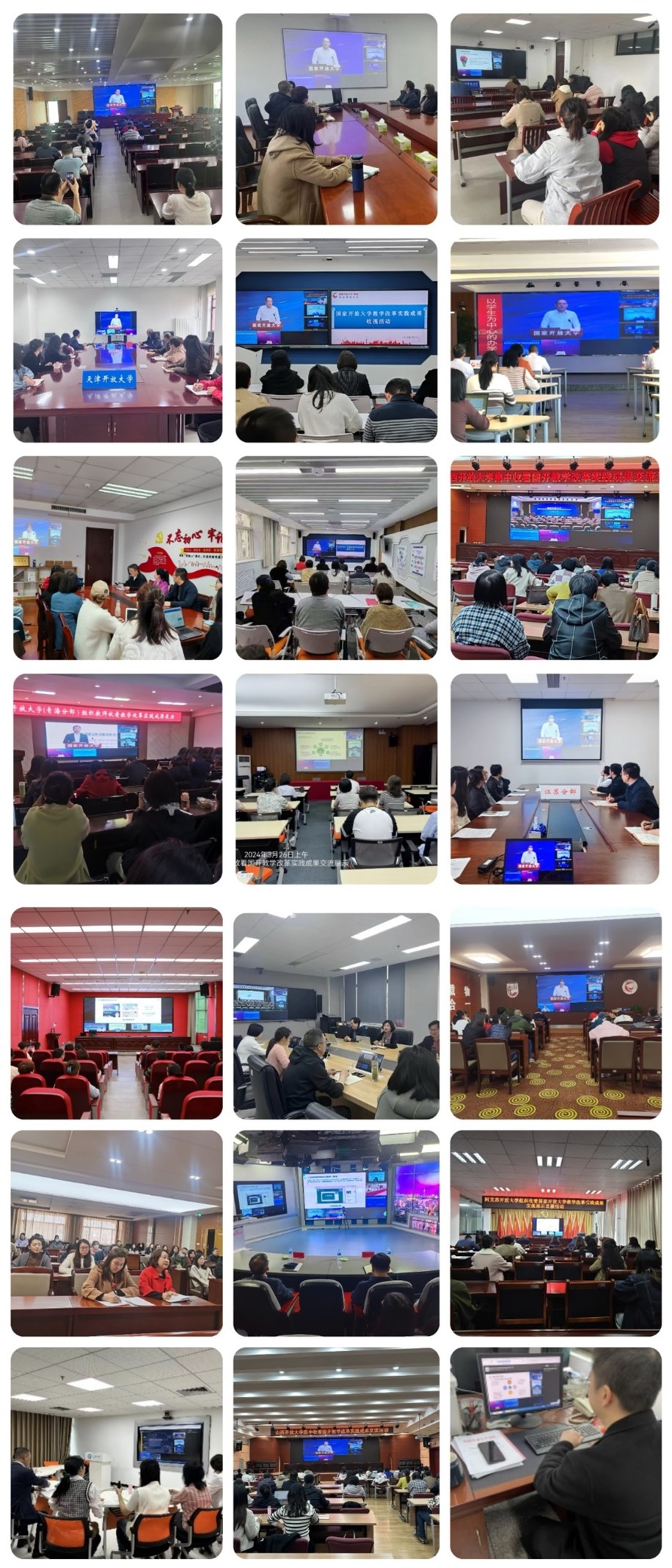
The event received positive feedback from units at all levels of the school system. Numerous provincial branches, prefectural and municipal OUs, branch campuses, and study centres highlighted that the showcased outcomes of education reform provided practical examples for frontline teachers to draw upon and implement, offering valuable insights and inspiration. Teachers also acknowledged the urgent need for education reform, expressing a commitment to proactively embrace change, enhance their digital literacy, and leverage digital technology to enrich education and teaching. Furthermore, many branches expressed a desire for the OUC to organise more learning and exchange activities focused on the practical application of education reform, aimed at boosting the digital skills and literacy of grassroots teachers and promoting the application of digital education reform outcomes to grassroots school-operating units. This approach is seen as a way to genuinely alleviate the workload of frontline staff and teachers.
Written by Academic Affairs Department, photos by Zhuge Huanyu, OUC